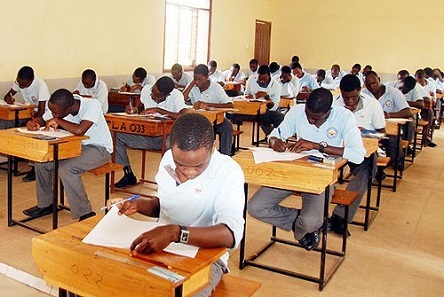BY WALE BAKARE
The recent announcement by the federal government introducing a new curriculum that includes subjects such as Technology and Innovation, Digital Literacy, Coding, Internet Safety, and Artificial Intelligence has been widely welcomed. This reform is a bold and necessary step in preparing young Nigerians for the demands of the twenty-first century. It signals a recognition that the world has changed and that education must adapt to equip learners with the skills to compete globally.
However, as laudable as this development is, the curriculum reform must not end at the level of policy design. Nigeria has a long history of drafting excellent policies that fail to achieve their intended impact because the enabling environment is absent. The promise of a reformed curriculum will remain unfulfilled if there is no deliberate investment in infrastructure, teacher training, and equitable access to digital resources. Without electricity, internet connectivity, and functional computers in schools, particularly those in rural communities, the new curriculum will remain a document rather than a lived reality for millions of children.
The world is in the middle of the Fourth Industrial Revolution, a period marked by rapid technological advancement, automation, and digital transformation. Countries that fail to adapt risk leaving their citizens behind in the global race for innovation and prosperity. For Nigeria, which is home to the largest population of young people in Africa, equipping children with digital skills is no longer optional.
Advertisement
Technology and innovation are at the heart of global competitiveness. Nations that have invested in building the capacity of their young citizens in science, technology, engineering, and mathematics have reaped dividends in economic growth and social development. By embedding digital literacy and coding into the curriculum, Nigeria is giving children the chance to not only consume technology but to create and innovate with it. Similarly, the inclusion of internet safety and artificial intelligence shows foresight. It reflects an understanding that the digital space must be used responsibly and that Nigeria cannot afford to lag in emerging fields shaping the global economy.
While the announcement of the new curriculum is inspiring, the practical challenges of implementation are enormous. Across the country, especially in rural and underserved communities, many schools lack the most basic facilities. It is common to find classrooms without chairs, roofs, or functional chalkboards. Expecting children in such environments to learn coding or artificial intelligence is unrealistic without significant investment in infrastructure.
Electricity remains a major hurdle. According to the World Bank, more than eighty five million Nigerians still lack access to grid electricity. For many rural communities, power supply is either erratic or entirely absent. A digital curriculum cannot be delivered without reliable electricity to power computers, projectors, and other teaching tools.
Advertisement
Internet connectivity is another major obstacle. While Nigeria boasts a growing telecommunications sector, the digital divide is stark. Urban areas are relatively well served, but rural communities struggle with poor or no connectivity. Introducing internet safety as a subject is commendable, but how can children practice safe online habits if they cannot access the internet in the first place?
The availability of computers in schools is equally troubling. Many public schools operate with a ratio of one computer to dozens of students, while others have none at all. Without adequate provision of devices, digital literacy becomes a theoretical subject rather than a hands-on experience.
Another critical factor in the success of this curriculum is the competence of teachers. Teachers are the primary drivers of education reform. If they lack the skills or confidence to teach coding, artificial intelligence, or internet safety, the curriculum will not achieve its objectives. Training teachers to deliver these subjects is essential. Professional development must be continuous, not a one-off exercise, and should include practical exposure to digital tools and platforms.
Moreover, there must be incentives to retain skilled teachers in the system. Many teachers leave the profession due to poor remuneration and a lack of recognition. If the government is serious about this reform, it must treat teachers as central stakeholders and ensure they are well-equipped and motivated.
Advertisement
Budgeting for education in Nigeria has historically been inadequate. Despite numerous calls from stakeholders, allocations to the education sector have consistently fallen short of the United Nations Educational, Scientific and Cultural Organisation benchmark of twenty percent of the national budget. A new curriculum without adequate funding is an exercise in futility.
Beyond allocation, project implementation must also be prioritised. Nigeria has suffered from poor execution of well-intentioned projects due to corruption, mismanagement, and lack of accountability. This must change if the new curriculum is to succeed. Every naira budgeted for infrastructure, teacher training, and digital resources must be tracked and accounted for. Monitoring and evaluation mechanisms should be put in place to ensure transparency and measurable outcomes.
Another concern is equity. Nigeria must ensure that the benefits of this curriculum reach every child, regardless of geographic location or socioeconomic status. If only children in urban private schools gain access to technology and innovation courses while their peers in rural public schools are left behind, the reform will deepen inequality. Education is a fundamental right, and reforms must be inclusive to truly serve the nation.
Special attention must also be paid to girls and children with disabilities. Studies have shown that girls are often excluded from STEM opportunities due to cultural barriers and a lack of support. Deliberate efforts must be made to encourage girls to participate in digital literacy and coding. Similarly, teaching materials and infrastructure must be inclusive for children with disabilities.
Advertisement
The government cannot do this alone. Partnerships with the private sector, civil society, and international organisations are crucial. Many technology companies have corporate social responsibility programs that focus on education and innovation. These can be harnessed to provide resources, training, and mentorship opportunities for students. Civil society organisations can help bridge the gap by delivering community-based programmes that complement the formal curriculum. International development partners can support with funding and technical expertise.
Stakeholder engagement should also include parents and local communities. Parents play a vital role in reinforcing what children learn in school. Communities can support schools by ensuring that facilities are maintained and that children attend regularly.
Advertisement
The introduction of subjects such as Technology and Innovation, Digital Literacy, Coding, Internet Safety, and Artificial Intelligence into Nigeria’s curriculum is a bold and visionary step. It has the potential to transform the nation’s educational landscape and prepare a generation of innovators and problem solvers. But reforms on paper will not be enough.
The government must match ambition with action by investing in infrastructure, electricity, internet connectivity, and computers. Teachers must be trained and supported to deliver the curriculum effectively. Adequate budgeting, transparent project implementation, and accountability mechanisms are non negotiable. Above all, the reform must be inclusive, ensuring that children in rural areas, girls, and children with disabilities are not left behind.
Advertisement
Nigeria has an opportunity to leapfrog into the future by equipping its children with the skills needed to thrive in a digital world. This opportunity must not be wasted. The curriculum is a good way to go, but without the right environment, its promise will remain unfulfilled. It is time to move from policy announcement to concrete action that will make this vision a reality for every Nigerian child.
Wale Bakare is a digital rights and digital inclusion advocate, co-founder/director of partnership and sustainability, Webfala Digital Skills for All Initiative.
Advertisement
Views expressed by contributors are strictly personal and not of TheCable.










